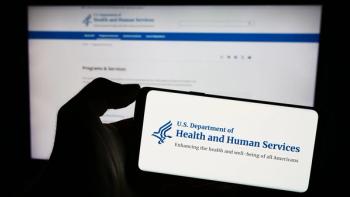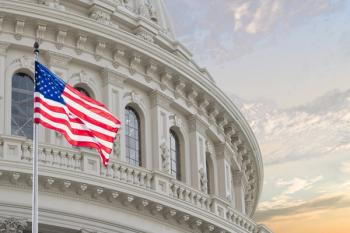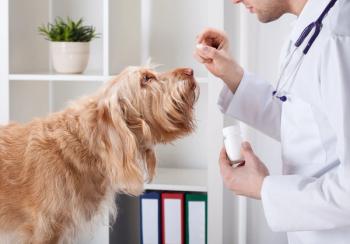
Pet owners could sue for companionship loss if New Jersey bill passes
TRENTON, N.J. - A pending New Jersey bill allowing pet owners to seek loss-of-companionship damages for animals killed or injured by contaminated feed could be a steppingstone to veterinarian vulnerability to similar claims, a veterinary organization warns.
TRENTON, N.J. — A pending New Jersey bill allowing pet owners to seek loss-of-companionship damages for animals killed or injured by contaminated feed could be a steppingstone to veterinarian vulnerability to similar claims, a veterinary organization warns.
New Jersey Assemblyman Neil Cohen says the legislation — specific to pet-food and other consumable-product manufacturers, distributors and retailers — was created with the best interests of pet owners in mind.
"Everyone knows there is a big loss after losing an animal. To address that, we provide for some financial remediation," says Cohen, D-Union. The bill allows owners to sue manufacturers and distributors of contaminated food for up to $15,000 for loss of companionship, in addition to replacement value at current levels and veterinary, burial or cremation and animal-training expenses. Damages also can be sought to cover any unique or special value of an animal, such as for guide or service dogs and show animals.
Held to a two-year statute of limitations, the bill applies to retail stores that do not properly respond to a recall notice by immediately removing the identified products from store shelves and taking other appropriate precautions, Cohen says. The legislation also authorizes local health authorities to destroy adulterated pet food held by a retailer to prevent it from being sold.
The action comes as no surprise following the recall, but sets a dangerous precedent going forward, says Richard Alampi, executive director of the New Jersey Veterinary Medical Association.
"Ray Charles could see this one coming down the pike. And New Jersey is not the only state," he says. "But this is a whole slippery-slope argument. Once you open the door and the horse comes out of the gate, you've established a precedent, which is loss of companionship. I don't think the profession would be comfortable (with clients) being able to sue for the loss of companionship of animals."
Arguing the bill elevates the status of animals beyond that of humans, Alampi notes that a person cannot seek damages for loss of companionship if his or her human best friend dies. "If a dog truly is your best friend, you cannot sue for loss of companionship. That is tantamount to the human side," he says.
Critics also argue that determining an animal's companionship value is subjective. "While it is not infinite," Alampi says of the $15,000 cap, "it is still an awful lot of money for something that is very arbitrary to prove. There is a huge difference between someone who has had a dog for 18 years and someone who just bought a puppy from a pet store last week."
Veterinary industry concerns are unjustified, as the bill has no impact on veterinarians, Cohen says. "Veterinarians are not involved in the bill at all. They are subject to absolutely no liability. This doesn't set any precedent for veterinarians," he says.
The bill must be approved by the assembly, the state senate and be signed by the governor to become law. If it is fast-tracked, it could be in place by year's end, Alampi says.
Birth of the bill
A newspaper article may have inspired the bill, and might have saved Ginger, Cohen's miniature Schnauzer, from eating melamine-tainted food. Reading the piece before dinner, Cohen learned his dog's pet food, part of a batch that remained on store shelves weeks after being recalled, could be lethal.
As a response to nationwide pet deaths and sickness from recalled products, the bill was prepared with a recognition that losing an animal can be as devastating as losing a loved one to preventable tragedy, Cohen says.
"Businesses must be held accountable when they make unsafe products — even if the victim is an animal," he says.
"No pet owner should have to suffer the loss of their family pet while the companies that make, produce and sell deadly foods get off scot-free."
Cohen supports numerous animal-friendly legislative efforts, including several pending bills that provide for adding a bitter agent to anti-freeze to dissuade animals from eating the now sweet-tasting substance, hanging color signs when pesticides have been applied to landscaping, prohibiting insurance companies from denying policies based on dog breed and anti-animal cruelty initiatives, among others.
If his current bill is enacted, New Jersey will be the only state to allow such lawsuits and relief, Cohen says. "We must provide real deterrents and consequences for the companies that act irresponsibly by causing or contributing to the serious harm of our four-legged friends."
Defending the industry
The recall impacted not only concerned pet owners and animals, but also pet-food manufacturers and distributors. "The pet-food industry empathizes with every pet owner who may have had a sick pet, or may have ultimately lost a pet, during the recent recalls. We understand that the loss of even one pet is too many," testified Kurt Gallagher, communications and export development director for the Pet Food Institute, before an assembly committee hearing in late May. PFI represents the makers of 98 percent of the pet food sold in the United States.
Gallagher says manufacturers take extreme care to ensure the safety of consumable items but can't always be perfect. "Sometimes, despite our best efforts, despite taking every available precaution, risk visits itself upon us. It is not possible to completely eliminate risk when it comes to food safety," he says.
Cohen's bill does not have the organization's backing. "PFI opposes the New Jersey bill because of provisions specifically affecting pet food which we consider to be a problem," says Duane Ekedahl, PFI president, who did not elaborate on specific issues. "Regarding the issue of the legal standing of pets, our board has not taken a position at this time. We are evaluating the possible unintended consequences of such laws for pet owners themselves as well as for veterinarians, such as increased costs throughout the sector stemming from higher malpractice insurance premiums."
At press time, no date had been set for a vote on the bill.
Newsletter
From exam room tips to practice management insights, get trusted veterinary news delivered straight to your inbox—subscribe to dvm360.




